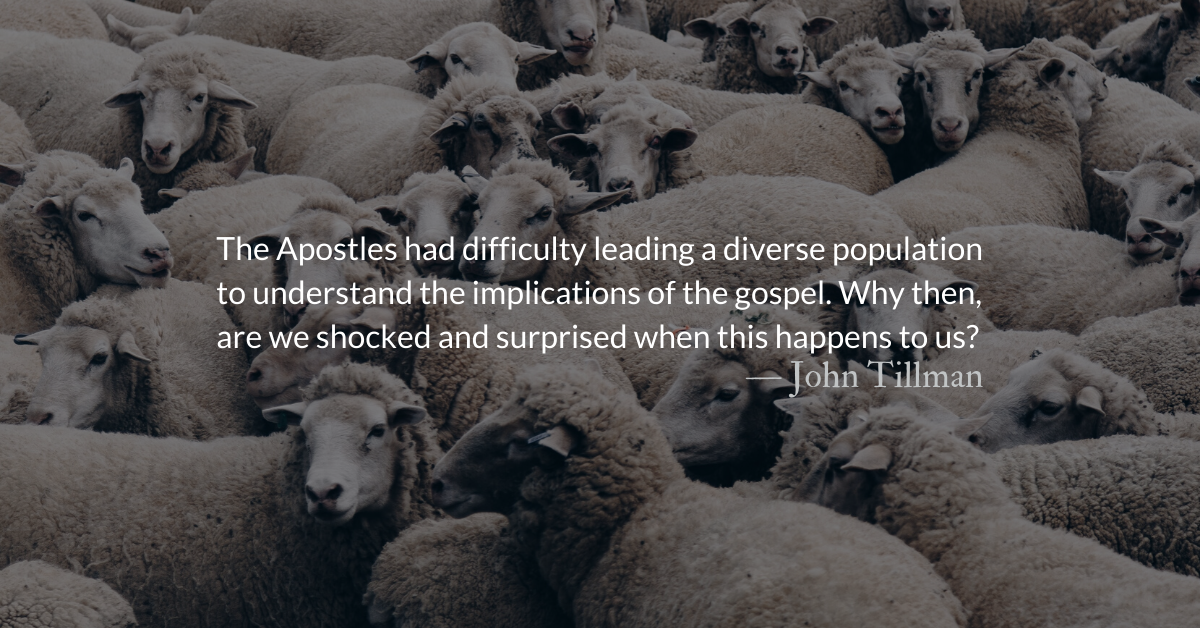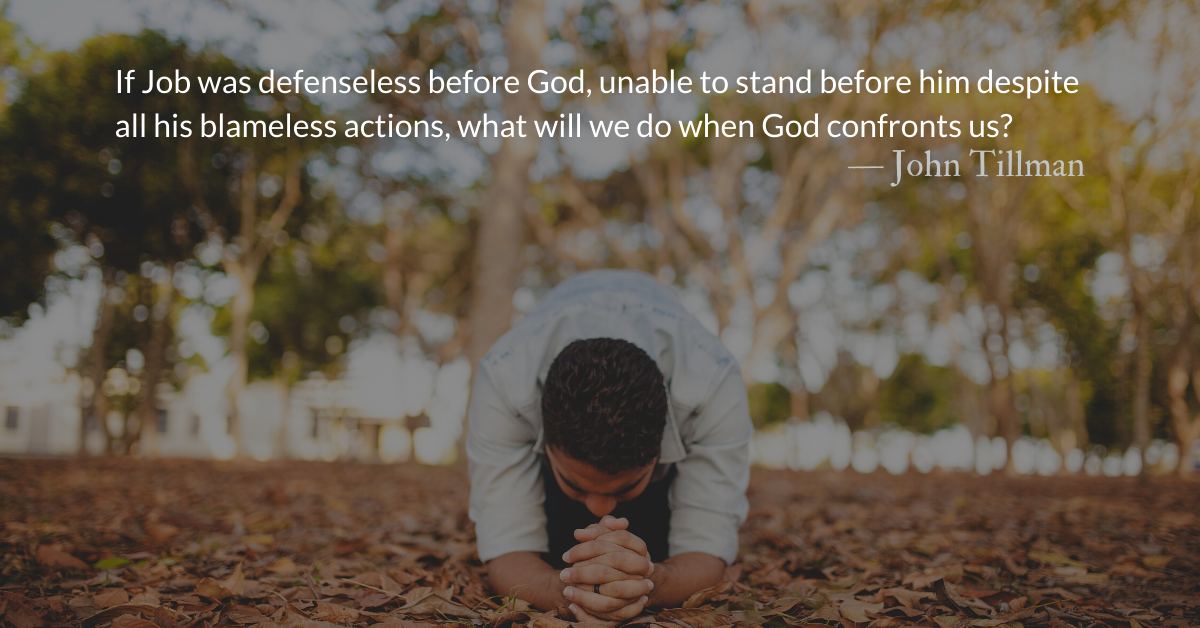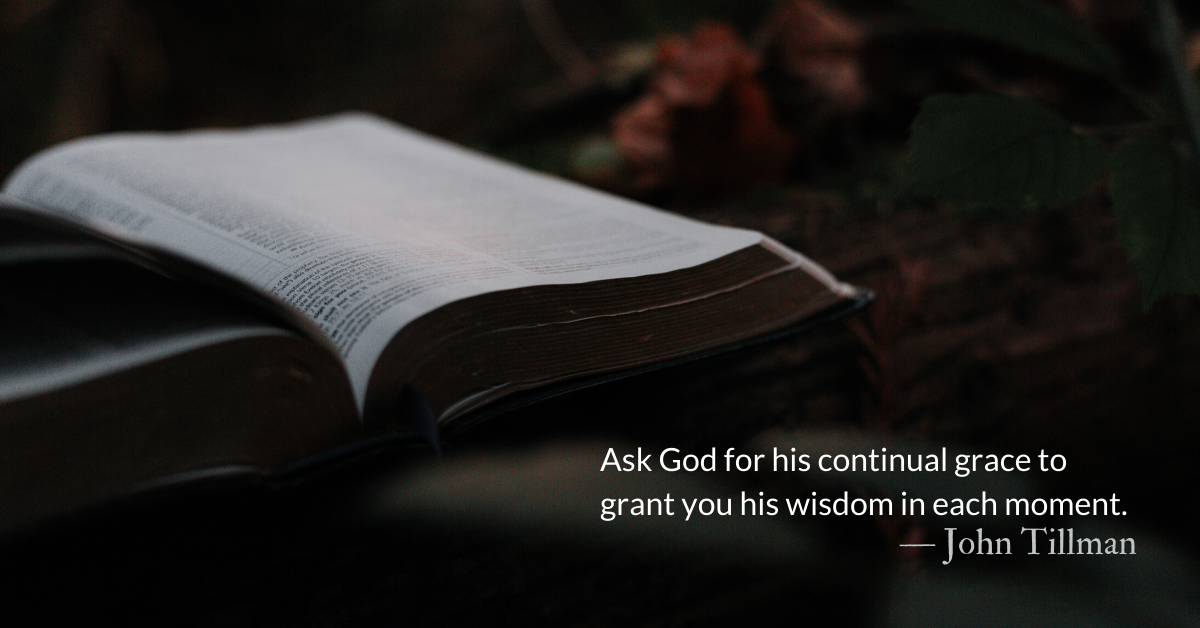Scripture Focus: 2 Corinthians 2.1-4
So I made up my mind that I would not make another painful visit to you. For if I grieve you, who is left to make me glad but you whom I have grieved? I wrote as I did, so that when I came I would not be distressed by those who should have made me rejoice. I had confidence in all of you, that you would all share my joy. For I wrote you out of great distress and anguish of heart and with many tears, not to grieve you but to let you know the depth of my love for you.
Reflection: The “Ideal” of the New Testament Church
By John Tillman
The New Testament church is often held up as an historical ideal. By this, people usually mean that if we only did things the way the New Testament church did, everything would be ideal.
But reading the history of the early church recorded in the New Testament shows us that conflicts, scandals, heresies, and difficulty in dealing with the prevalent sins of the culture were common problems.
The Apostles, leading the early church, were men and women who saw the actual face of Christ. Christ-in-the-resurrected-flesh breathed on them and said, “receive the Holy Spirit.” They spoke in tongues and had tongues of fire over their heads; they raised the dead; they had prophetic visions and powers of healing. Yet even with all of their spiritual power, gifting, and clarity, the Apostles had problems in every church they planted. They dealt with conflict, personality clashes, arguments about worship styles, arguments about food and drink, arguments about power, arguments about money, arguments about sexual ethics, and arguments about racial divides.
The Apostles had difficulty leading a diverse population to understand the implications of the gospel. Why then, are we shocked and surprised when this happens to us?
Rather than one “ideal,” when we look at what the different churches actually did, we see many variations. They met in the Temple. They met by the river. They met in homes. They met in the public square. They met every day. They met on “The Lord’s day.” They met in the morning. They met at midday. They met all night long. Their leadership structures seem flexible as well. The shared leadership of multiple churches across a vast area amongst Paul, Barnabas, Priscilla, Aquilla, Apollos, James, Peter, Junia, Timothy, Silas, and many other Christian leaders is unlike church or denominational leadership structures today. Their style of worship seems to be varied with some following orderly Jewish customs of the reading of scripture or of letters from Apostles and some engaging in freewheeling times of multiple impromptu speakers in unplanned succession.
The one thing we can definitively say about the practices of the local churches in the New Testament is that they were led by the Holy Spirit. And the one thing that the Holy Spirit seems to have inspired in all of them is a spirit of innovation and flexibility in practice, while holding tightly to a strict theological interpretation of the gospel.
This is something we can aspire to in our churches and our lives.
Divine Hours Prayer: The Call to Prayer
Search for the Lord and his strength; continually seek his face. — Psalm 105.4
Today’s Readings
Job 32 (Listen -2:12)
2 Corinthians 2 (Listen -2:13)
Read more about The Church of Acts
Acts is not a step-by-step program to cut-and-paste into modernity. It isn’t a start-up handbook
Read more about To the Worst Churches in the Bible
There are many strange and unfamiliar images in Revelation that we have no context for and do not easily understand. But one that has a very familiar ring is the description of scandal-filled churches.











